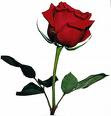Raven Mothers, published by
Doire Press (2018) is
Breda Wall Ryan's second poetry collection. Her debut,
In a Hare's Eye (2015), was awarded the Shine/Strong Poetry Award. A Pushcart and Forward Prize nominee, she won the Gregory O’Donoghue International Poetry Competition, 2015 for
Self Portrait in the Convex Bulge of a Hare’s Eye, which is the title poem of her first collection. In 2013, she won the iYeats Poetry Contest, Poets Meet Painters, Dromineer Poetry Competition and Over the Edge New Writer of the Year. She was selected for Poetry Ireland Introductions Series 2014 and was awarded second place in the Patrick Kavanagh Award. Breda grew up on a farm in Co. Waterford and now lives in Co. Wicklow.
The cover art of Raven Mothers (Weight of Wings by Jeanie Tomanek) and the opening poem Oneironaut, a sequence of three, set the tone for this collection. An oneironaut is one who travels through dreams, a lucid dreamer, a daydreamer. The cover image mirrors an image from Wall Ryan's Tender Loving Care in which is written 'a flock of opal wings swooping over a grave./Some say a devil exists; some say angels'. The title poem Raven Mother explains what such a parent is. She is a woman of many pieces: daughter, orphan, partner, mother, empty-nester, and widow. Yet there are other mothers, mother courage or the monster, the Raven Mother, 'one who abandons her brood' and the mother whose child dies, perhaps prematurely, 'But the raven whose chick dies first,/dies twice'.
Wall Ryan's imagination can be an unsettling place. Strange creatures such as a bat in Intruder and the child of Merbaby are painted lovingly and of course could be metaphors for loss and abandonment. The Gate Clangs is full of loss, 'Your pillow is dented/where no head will nestle again'. Because Roses, where the scent of late November roses is appreciated, is juxtaposed against the violence of the rose which is 'shredded' in Debut.
One feels that the poem Medea Syndrome is one key to the work. It describes the not unfamiliar, though rare, scene of the death of children by the hand of the mother. Wall Ryan references Medea from Greek mythology and once again shows compassion for the other side of the tale, the reasoning of the woman. I find this admirable. (Those Greeks knew the human condition, didn't they?) I really enjoyed Firestealers in that it turns patriarchy on its head and reminds us of what we all know of course, that women are the stronger sex, 'their fire/died in the kitchen range/without a woman to tend it'.
The book is divided into two section, Raven Mothers and Epiphanies. The opening poem of Epiphanies, Epiphany at Jamaica Plain is striking in being so relative to the current climate of civil unrest in the US and beyond. Wall Ryan describes feeling uneasy when she is an area of Boston where there have been no white people for a time on a journey. Later she realises 'this fear/is race-coloured. I have sleepwalked/my whole life, thinking myself untainted'. Wryly the poet tackles issues such as mental health in Punchline, excess and addiction in On Doing Fourteen Lines (the poem is fourteen lines long), consumerism in All Day Sunday and war in Go Ask Your Own. There is devastation in the lines
Go ask your ancestors if breaking glass
was the music that drove them to disperse
across a hostile earth.
Playing God in the Orchard frames the saving of a pear tree that is rotting but thankfully 'a tuft of tender leaves erupts' and 'that pale green generates hope'. Prayer is a depiction of an idyllic rural scene, a praising of an Indian Summer. Irish Hare: An Assay is a gorgeous piece of writing and worth buying the collection alone for. It is against death the poet is battling in Counterhex: Against Death and the Raven, echoing the question asked in The Woman who Toasted the Owl, 'Who is the raptor?' Starveling shows a father's compassion for a starving fox in winter. I read this poem with bated breath, so thankful for kindness instead of cruelty.
I found the line 'She wished on the Codex to be aerodynamic' wonderful in Hope is the Deadliest Sin where a bird-woman is captured. The recurring imagery of the bird in the collection cannot be ignored. While different birds are symbolic of different things the chief association I have with the bird is freedom. Of course a bird can be caged and freedom taken away.
Let Death Not Come is a moving and courageous poem. The poet asks for death to come 'at dusk when the eaves sing'. I cannot help thinking of those who have lost their lives to COVID-19 when Wall Ryan writes 'Let death not come in a white room under harsh lights'. I much prefer her heralding of death than Thomas' Do No Go Gentle Into That Good Night.
There is so much to admire in Raven Mothers that I am sure that I have only glimpsed the surface of its depth. Breda Wall Ryan writes with a fearlessness and an economy of language that must only come to those who are truly skilled. Even in the last poems the tempo is accelerated and you might find yourself breathless on reading Questions that Keep me Awake and Now that the White Bear is Gone, both chilling contemplations of the future.
Determined to continue on her meaning-making of the dream voyage she embarked on as an oneironaut Wall Ryan says in the final poem, Poetry is, 'A hand-drawn, pictorial map of the dreamscape./We walk always into the dark, whistling'. I am thankful for having travelled at least some part of this journey now too.



























